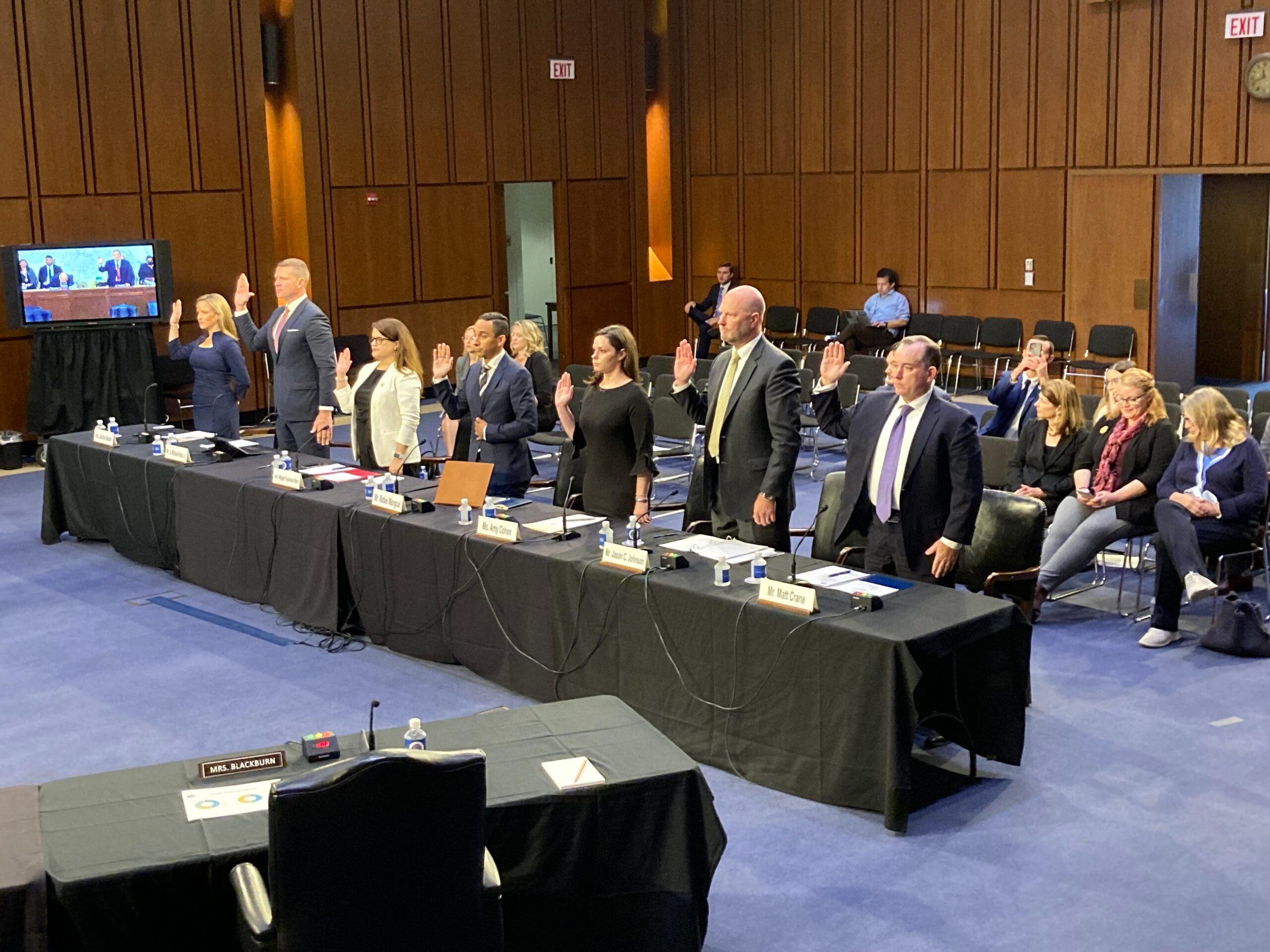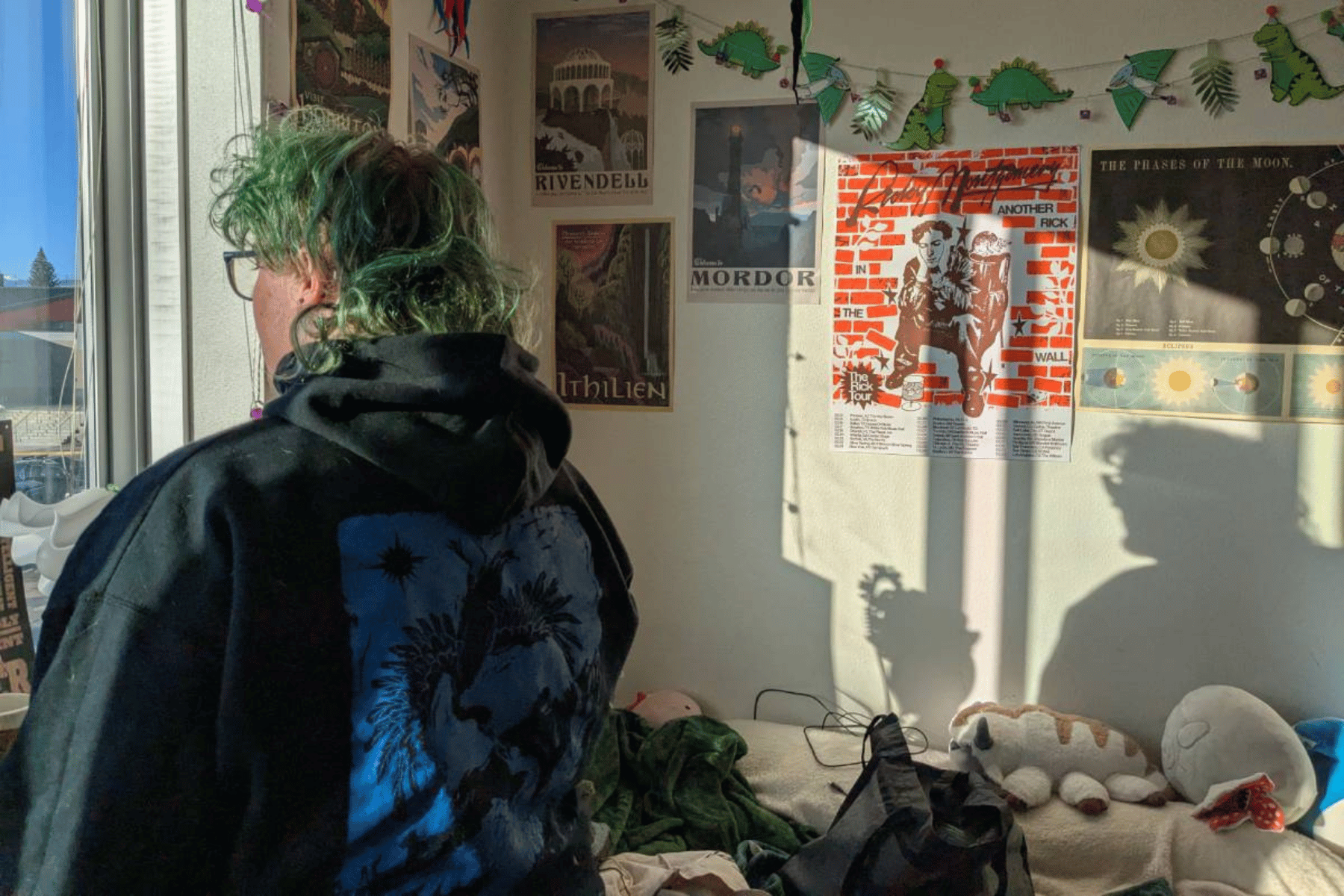
In a cavernous, wood-paneled Senate hearing room, Matt Crane testified in front of the judiciary committee Wednesday about the threats facing election workers in Colorado.
“One of the outcomes of this unprecedented attack on our election systems is that it is radicalizing people in a way we haven’t seen before,” he said.
Crane, the executive director of the Colorado County Clerks Association and a former Republican county clerk, was one of four state elections experts testifying at the committee’s first hearing on protecting elections workers.
He told the senators in the room that more than a quarter of Colorado county clerks have fortified their offices in some way.
“These emerging and pervasive threats to election workers and the clerks that oversee that work are falling the heaviest on Republican clerks right now,” said Crane. “Many, if not all of them, have seen an uptick in everything from concerning emails to actual physical threats.”
Michigan Secretary of State Jocelyn Benson, a Democrat, told the committee about a night in December as she was putting her son to bed and a dozen people descended on her home, “growing in numbers over the course of an hour they stood outside, waking my neighbors, shouting obscenities and graphic threats.”
Benson’s voice cracked as she said her six-year-old son told her “Don’t worry mom, if the bad guys come again I’ll get them with this,” showing her a stick he had picked up.
New Mexico Secretary of State Maggie Toulouse Oliver, also a Democrat, told the panel that her personal information was made public on the internet, and she had to leave her home under state police protection for weeks.
These kinds of incidents aren’t rare. Amy Cohen, with the National Association of State Election Directors, said stories about threats against elections officials or workers “grew more common” in 2020, with nearly all states experiencing these kinds of incidents.
While many of the elected officials said they knew what they were getting into, Crane pointed out Colorado’s election judges, who are also bearing the brunt of threats and intimidation, are just members of the local community.
“It’s our church members, it’s our Elks Lodge members, it’s the PTA — these are the people that are actually conducting the elections,” he said. “We are seeing in our counties in Colorado where people are trying to get the information, the names and addresses and telephone numbers of these citizen election workers, so they can put pressure on them, intimidate. It has had a chilling effect on their willingness to participate.”
Colorado has tried to address the issue of increased threats to county clerks and other election workers and staff.
The state has a new law that makes it illegal to publish election officials’ personal information publicly — a practice known as “doxxing” — and allows those workers and their immediate families to remove their private information from open records requests.
But Crane also wants federal action. He had two requests for the senators. The first was straightforward — make it easier for local election officials to access federal funds for security. He said the process right now is cumbersome.
The second could be much harder to get from Congress. Crane asked for GOP leaders to stand up to the lies about a stolen election and say “enough.”
“What's happening now is based off of two things. It's based on a lie [that the 2020 presidential was stolen]. And it is based on a lack of leadership, unfortunately from my party,” said Crane, who describes himself as a conservative Republican. He said he’s heard from elected Republican officials that they know the truth but won’t speak out because they are “worried about political retribution.”
In a sign of how difficult it will be to find the kind of leadership Crane is hoping for in Congress, the three hour hearing at times was like a split screen, starting with the witness list.
The election officials on the panel were all invited by the committee's Democratic members, while Republicans brought in former law enforcement officers and an expert from a conservative think tank to talk about crime across the country.
And while everyone decried violence, Democratic senators focused their statements on the threat election workers face, while Republicans spoke instead to the overall rise in crime and the threats made by people on the left, be they against aconservative Supreme Court justices or crisis pregnancy centers
Ranking Member Chuck Grassley was the only GOP senator to stay and ask questions of the panel Crane was on. And Grassley left as soon as his question period was up. (A number of senators from both sides of the aisle did not show up for the hearing, but it was mainly Democrats asking questions of Crane’s panel.)
“It was disappointing that so many members from the Republican side weren't here for the hearing,” Crane said afterwards. “They had a strategy to talk about the rise in crime, across the board, which I get. I totally understand that argument, but we should be able to walk and chew gum at the same time. You should be able to talk about both and we should be able to do more in both areas.”
However, that concern did not diminish the experience for Crane, who was testifying before Congress for the first time and was excited to be there to talk about what he sees as a crucial issue. He thought it was important for senators to hear the challenges facing Colorado’s election officials.
He ended his testimony on an almost positive note.
He noted that, after a rough couple of years, election workers are getting a second wind, finding their resolve and getting ready to “step into the breach” to defend democracy again in the next election.
And Crane said local and state officials can continue to run successful elections, ones their citizens can be proud of and have confidence in, “but we need people to lead.”
“And if they don’t want to lead, then get behind us. We’ll lead, because that’s what we’ve been doing for two years,” Crane said.








